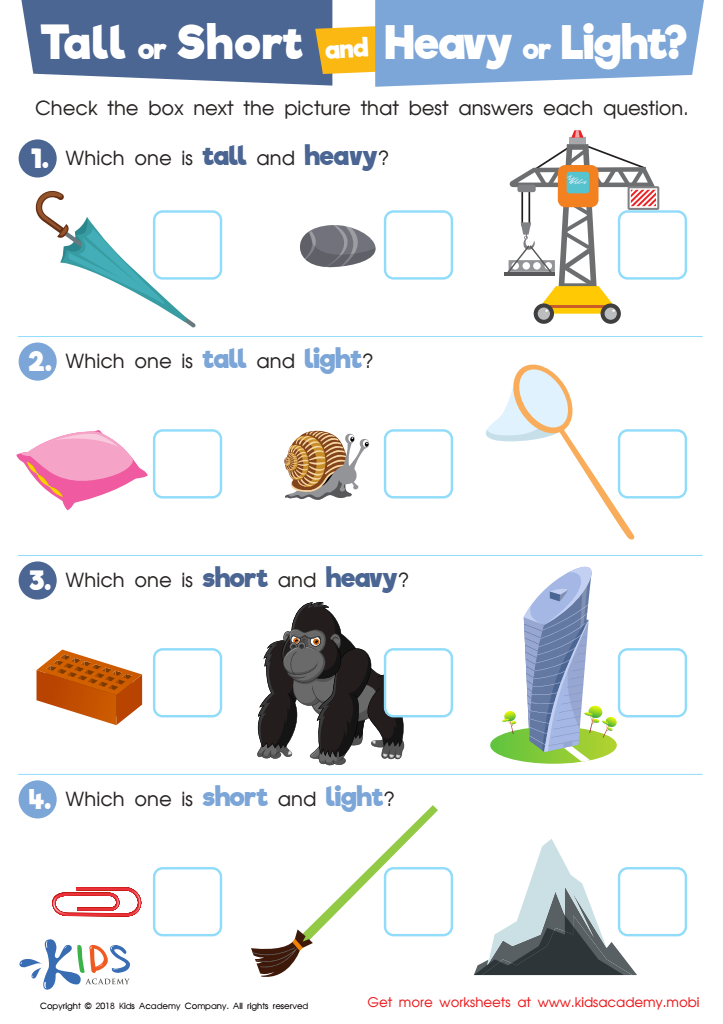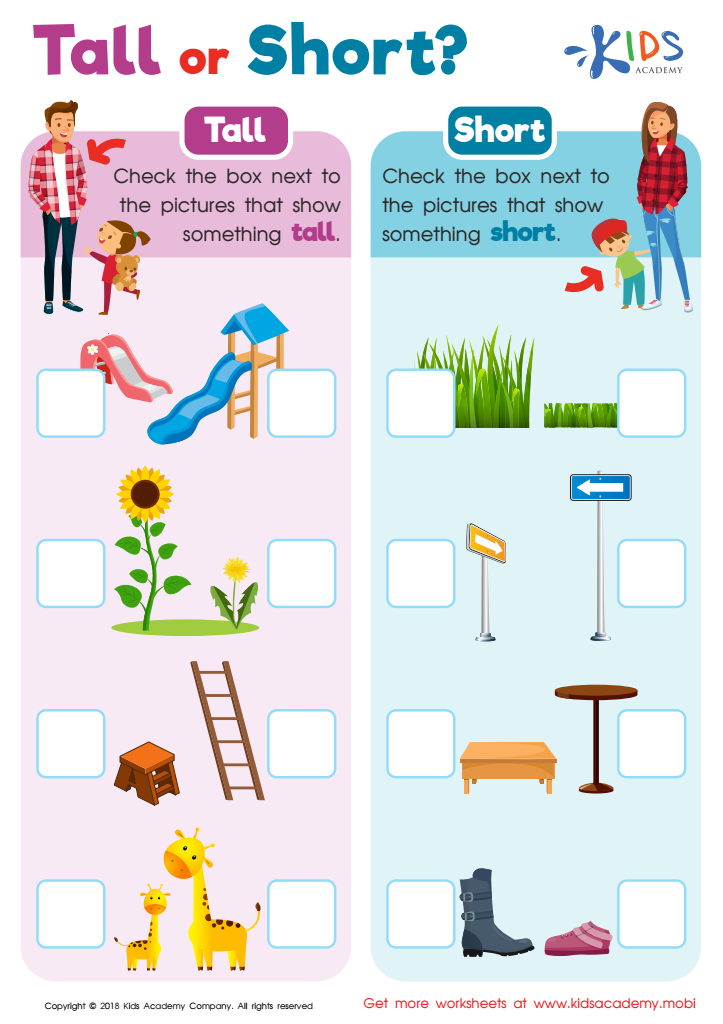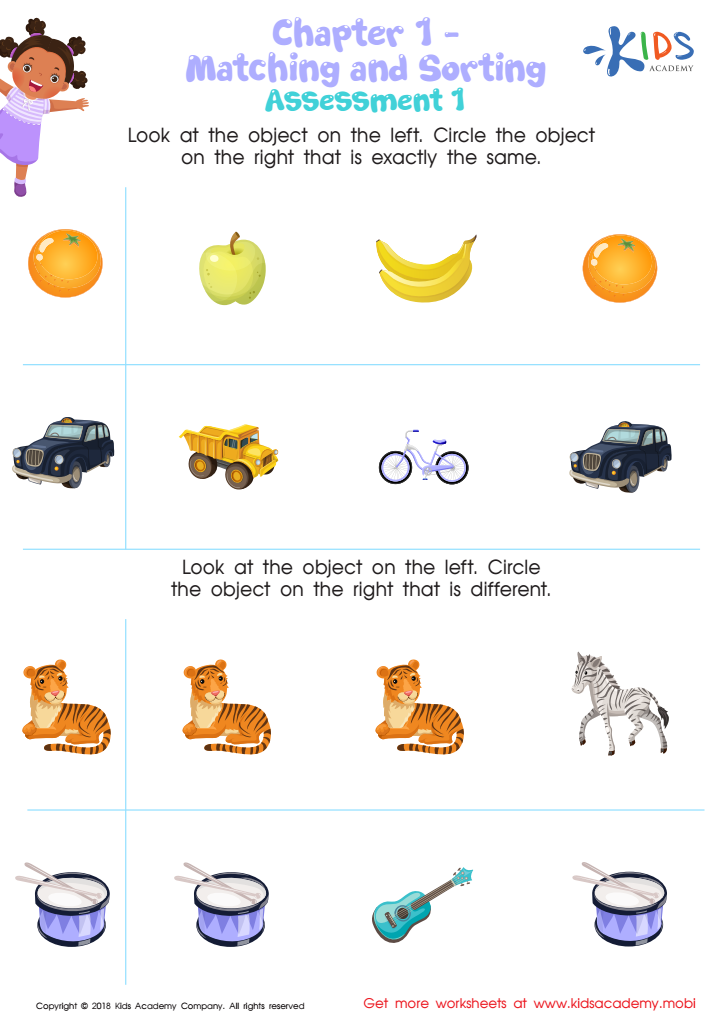Easy Sorting Worksheets for Ages 3-7
3 filtered results
-
From - To
Welcome to our collection of Easy Sorting Worksheets designed especially for children ages 3-7! These engaging and interactive worksheets help young learners develop essential sorting skills while having fun. Our colorful and creative activities encourage kids to categorize objects by colors, shapes, and sizes, fostering critical thinking and fine motor skills. Ideal for use in the classroom or at home, these worksheets are perfect for play-based learning. Explore our easy-to-print resources and watch your child's confidence grow as they master sorting concepts. Start your educational journey today and make learning enjoyable with our thoughtfully designed materials!


Tall or Short and Heavy or Light? Worksheet


Tall or Short? Worksheet


Matching and Sorting for Preschool: Assessment 1 Worksheet
Easy sorting activities are crucial for children aged 3-7 as they lay the foundation for essential cognitive and social skills. During this developmental stage, children are naturally curious and eager to explore their environment. Sorting helps them develop critical thinking and organizational skills. When kids engage in sorting tasks—whether by size, color, shape, or category—they are not only learning about classification but also enhancing their problem-solving abilities.
Moreover, sorting activities encourage language development and vocabulary expansion. As children describe their sorting criteria, they learn new words and improve communication skills, which are vital for their social interactions. These activities also promote fine motor skills as children manipulate objects, improving their hand-eye coordination and dexterity.
Incorporating easy sorting into early childhood education can foster a sense of accomplishment and boost self-esteem. Parents and teachers can utilize everyday items to make sorting fun and relatable, ensuring that foundational skills are taught in an engaging way. By supporting these activities, parents and teachers can effectively nurture children's learning and prepare them for more complex concepts in mathematics and science later on. Overall, easy sorting is an effective and enjoyable tool for holistic child development.
 Assign to My Students
Assign to My Students


















